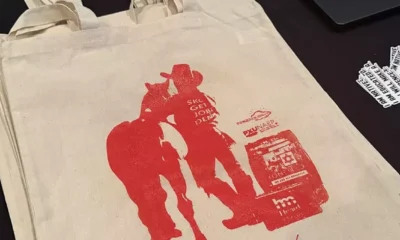Elayne Gregg
Grassroots Warriors: Empowering Indigenous Voter Engagement

Elayne Gregg’s memories of voting on the Tohono O’odham Nation are deeply personal. She recalls sitting at her grandmother’s kitchen table, guiding her through the intricacies of her ballot. “It was so hard for her to understand what she was reading,” recalls Gregg, who took the time to clarify each section for her. That experience has motivated her ongoing commitment to engage her community in the electoral process.
As the election season heats up, grassroots efforts to encourage voting are making strides across Arizona. Communities are organizing rallies and events to ensure that every voice is heard before Election Day. However, while national campaigns often focus on urban voters or collaborate with Tribal governments, rural Indigenous voters frequently feel overlooked. Integral to bridging this gap are grassroots organizations like Indivisible Tohono, founded in 2017, which aims to inform and mobilize the Tohono O’odham people.
Arizona plays a crucial role in this election, with Indigenous individuals comprising about 6% of the population. Approximately 300,000 voting-age residents are Natives, a significant demographic that has historically leaned Democratic. During the 2020 election, many voting precincts on Tribal lands showed a preference for Democratic candidates.
Indivisible Tohono Co-founder April Ignacio emphasizes the year-round commitment necessary to engage with Native voters effectively. She points out that many external organizations fail to recognize the long-term dedication required to build trust and relationships within Indigenous communities. “Working in tribal communities is hard, it’s very hard,” Ignacio says, highlighting the community’s need for ongoing support.
Located in south-central Arizona, the Tohono O’odham Nation is the state’s second-largest reservation and is home to some of Arizona’s most isolated communities. Basic amenities are often scarce, making it even more critical for organizations like Indivisible Tohono to step in with reliable information and resources. Ignacio stresses that their approach revolves around accountability to the community, stating, “We’re not going away.”
Indivisible Tohono employs various strategies to promote civic engagement, from voter registration drives to forums featuring candidates. Each initiative aims to foster active participation among the Tohono O’odham people, who often harbor skepticism about the electoral process. Gregg shares that many Indigenous individuals feel their votes do not count, a sentiment rooted in historical disenfranchisement. “We’ve gotten placed on the back burner for generations,” she notes.
Engagement strategies also include creative events like “Slay to the Polls,” a drag show supporting the 2SLGBTQ+ community, and “Mosh the Vote,” featuring Indigenous heavy metal bands. Ignacio points out the importance of these events in building a welcoming atmosphere while educating attendees about the voting process. “Politics turns people off, especially in Indigenous communities,” she explains, underlining the necessity of making events enjoyable and informative.
Pima County Recorder Gabriella Cázares-Kelly, who is also a co-founder of Indivisible Tohono, emphasizes the need for systemic changes to support Native voting. After facing challenges in obtaining accurate voting information for her community, Cázares-Kelly is determined to revolutionize how her office interacts with Indigenous voters. “My staff is going to be able to say: ‘Oh, is this an address on the Tohono O’odham Nation? Okay. Let me get you to the right person,’” she assures.
Ultimately, Indigenous leaders assert that voting is just the beginning of civic engagement. “It’s not the most important thing,” Cázares-Kelly states, emphasizing the need for continuous involvement in community matters. She believes that genuine change comes from Indigenous people sharing their stories and fostering community connections, presenting a powerful narrative that underscores their agency and determination.


















